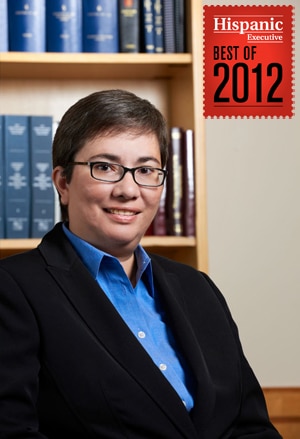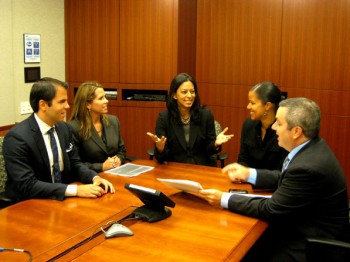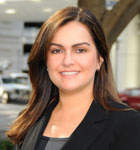
What inspired you to pursue a legal career?
My mom worked for an organization that supported migrant workers—in particular, she worked in their clinic with the on-site doctors. She helped to translate the conversations between the patients and the doctors, who did not speak Spanish, to ensure the doctors understood the patients’ symptoms and the patients understood the doctors’ instructions for care. She did tremendous work to help make a difference in the lives of these workers, and impressed upon me the importance of helping to support others. That’s the main reason why I decided to pursue a career in law—to help support others when they might need it most and to make a difference in their lives.
How were you able to translate that desire to help others into your law career?
I’m a strong believer that if you want peace, you have to work for justice. When I entered the field of law, I wanted to be a force for good. In my roles with the Legal Assistance Foundation of Chicago and the Illinois Human Rights Commission, I was either representing people or making decisions in cases where something bad may have already happened. In some cases, a person had experienced something awful or tragic in his or her life, and that couldn’t be undone. Sure, in these cases I could help them to obtain some justice for that act, but it couldn’t take that memory away.
Some of my most important work with the Legal Assistance Foundation of Chicago was supporting battered women and children, helping them to obtain protection orders and representing women in divorce proceedings. This was very meaningful work—we were helping to protect the lives of women and children in very serious and dangerous situations. And as I thought back to the lessons of my mother, this work certainly helped to support people when they needed it the most, and I hope, made a difference in their lives.
Why did you ultimately choose to move into an in-house counsel role?
When I was approached by Keebler, I saw it as an opportunity to affect change, an opportunity to help ensure that people who worked for Keebler—and now Kellogg—have a positive experience when they come to work each day, that they’re treated fairly, and treated well. I’m also able to help many more people than I could in my other roles—we have approximately 31,000 people at Kellogg. That’s a big difference when you compare to only being able to help one plaintiff at a time.
Have you faced any unique challenges as a woman and a Latina in your field?
As much as I wish it were otherwise, discrimination is still alive and well in and out of the workplace. There are stereotypes out there—stereotypes that perpetuate how a woman, how a Latina, or how a lawyer should look and act. I don’t look or act like these stereotypes. In fact, when I first meet people, some are often surprised to learn that I’m a lawyer. They often assume I do more of a manual job.
What advice do you have for young minorities preparing to enter the corporate world?
You can’t let negative attitudes and perceptions defeat you. Ignore them or they will become a self-fulfilling prophecy. You have to believe in yourself, believe that you can achieve your goals and objectives, and by doing so, you’ll affect change. Change doesn’t happen by simply wishing that things will change—[it] happens when people actually do something.
Get to know all of Hispanic Executive‘s “Best Of 2012” Recipients here.

